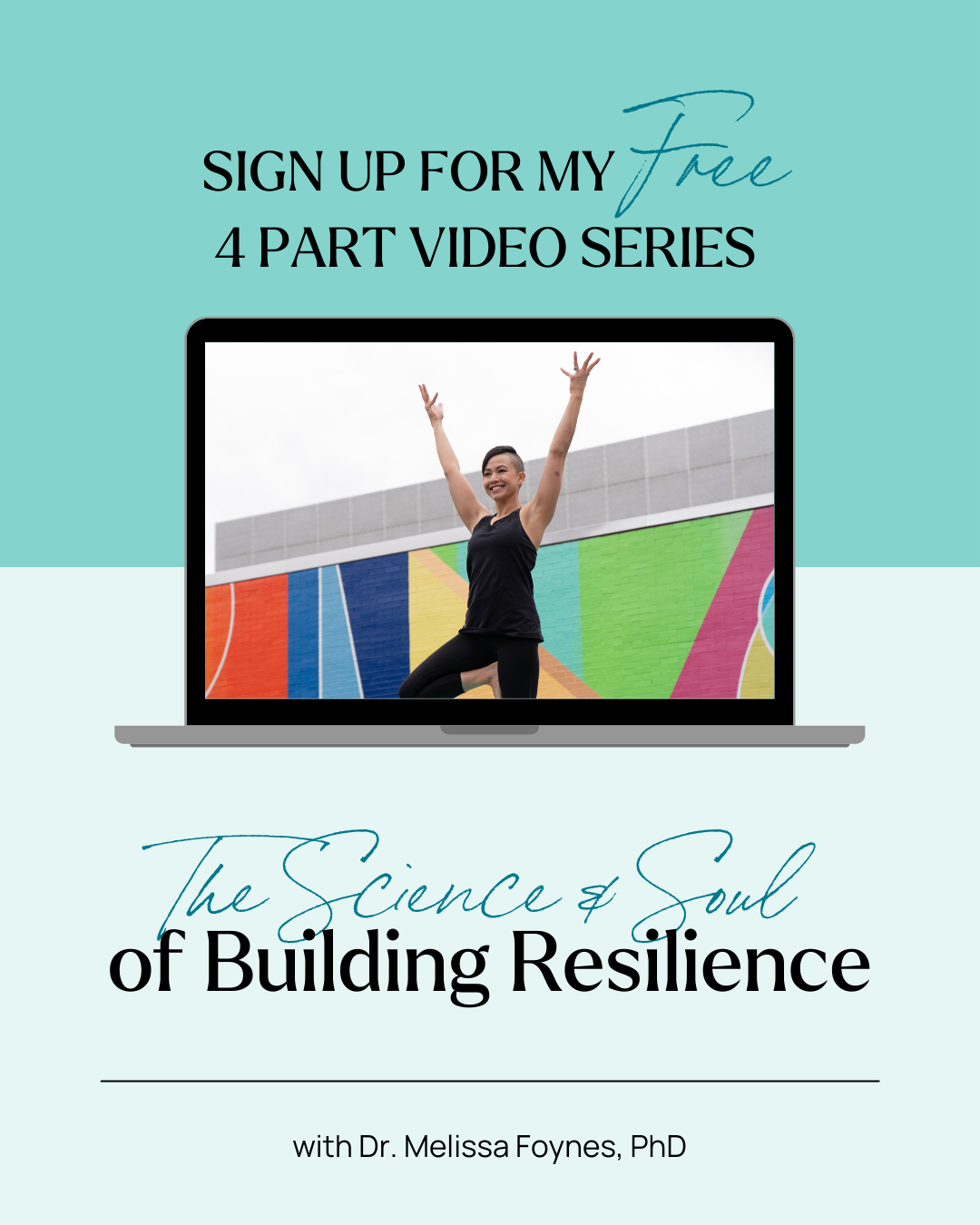welcome, I'm Melissa
Links
As a holistic coach, psychologist, mindfulness, meditation & yoga instructor, & Ayurvedic doula I offer personalized paths to growth & healing.
you may also like...
The Effects of Patriarchy and Capitalism – An Interview with Laura Lu
April 22, 2021
Patriarchy and capitalism are intertwined systems that can significantly impact our mental health. In my interview with Laura Lu, we highlight several key mental health issues stemming from these systems. We also share possible tools and strategies to promote both individual and collective healing, and to deconstruct and dismantle patriarchy and capitalism from the inside out.
Since patriarchy and capitalism are two complex topics, it’s useful to have prevailing definitions for our discussion.
Per Wikipedia, patriarchy is a social system in which men hold primary power and tend to predominate in roles of political leadership, moral authority, social privilege and control of property. Some patriarchal societies are also patrilineal, meaning that property and title are inherited by the male lineage.
Capitalism is defined as an economic system that tends to be based on private ownership of both the means of production and their operations for profit. Some central characteristics of capitalism include capital accumulation, competitive markets, private property, and the recognition of property rights and wage labor.
In my conversation with Laura, we explore how these systems affect our mental health, including themes of self-worth, self-blame, perfectionism and productivity. Laura is a graduate student studying clinical psychology in San Francisco, California, and she currently resides in Vancouver, Canada. She is originally from Taiwan, immigrating to Canada at a young age. Given Laura’s personal, academic and professional experiences, she is passionate about incorporating a culturally sensitive lens in approaching mental health.

How patriarchy and capitalism affect us all
 Melissa: I think it would be helpful to start by sharing a bit about how we came to collaborate on this topic. Laura and I have been doing a lot of thinking about patriarchy and capitalism — and ways in which both of these systems have affected us personally. We were also brainstorming ways that we can heal from some of the negative effects of these systems, and how, as mental health practitioners, we can best support others in their healing.
Melissa: I think it would be helpful to start by sharing a bit about how we came to collaborate on this topic. Laura and I have been doing a lot of thinking about patriarchy and capitalism — and ways in which both of these systems have affected us personally. We were also brainstorming ways that we can heal from some of the negative effects of these systems, and how, as mental health practitioners, we can best support others in their healing.
So Laura, I want to give you the opportunity to share anything that you’d like about how we came to this topic.
 Laura: One thing that I’m really happy about is that the mental health field is moving towards recognizing that our mental health cannot be separated from the systems that we live in.
Laura: One thing that I’m really happy about is that the mental health field is moving towards recognizing that our mental health cannot be separated from the systems that we live in.
These two systems, like other systems that we have in society, are interconnected. So capitalism feeds into patriarchy, and I believe patriarchy feeds into capitalism.
 Melissa: Yes, it’s pretty impossible to parse out the singular effects of each because they are so interconnected. I think our individual healing is tied to our collective healing, and we all share in being affected by these systems. So our healing doesn’t have to be individualistic. One way of actually fighting against some of these systems is to take a more collectivistic approach.
Melissa: Yes, it’s pretty impossible to parse out the singular effects of each because they are so interconnected. I think our individual healing is tied to our collective healing, and we all share in being affected by these systems. So our healing doesn’t have to be individualistic. One way of actually fighting against some of these systems is to take a more collectivistic approach.
What topic feels really important to lift up and to give voice to in our conversation today?
 Laura: I think one thing that I’m really thinking about lately is the idea of productivity, especially now when there is a lot of social unrest and calls to action. One thing that is hard to separate out from capitalism is productivity, not just in our workspaces but also in our personal lives. I’m really seeing how I put pressure on myself to constantly produce or create ways that we can help people who are being oppressed or racially discriminated against. But doing our part as allies is also not burning out.
Laura: I think one thing that I’m really thinking about lately is the idea of productivity, especially now when there is a lot of social unrest and calls to action. One thing that is hard to separate out from capitalism is productivity, not just in our workspaces but also in our personal lives. I’m really seeing how I put pressure on myself to constantly produce or create ways that we can help people who are being oppressed or racially discriminated against. But doing our part as allies is also not burning out.
One big theme is how can I do the important work that I feel called to do without burning out, to give myself permission to lean in and ask myself, “Am I sacrificing my own needs for this idea of producing more?”
 Melissa: One thing that came to mind for me was how in this past year, with so much social unrest and the stressors related to the pandemic, people are under a lot of strain. And yet there is this pressure to be growing and evolving.
Melissa: One thing that came to mind for me was how in this past year, with so much social unrest and the stressors related to the pandemic, people are under a lot of strain. And yet there is this pressure to be growing and evolving.
For many people, that does mean maintaining some kind of connection to activism and advocacy, and also leaning into this idea that we don’t need to be growing all the time. That isn’t necessarily the ideal, and real nurturance and self-care is a part of being advocates. I guess, it’s about being balanced keepers of ourselves and tending to our vessels.
 Laura: I love how you said balanced keepers of ourselves; that resonates with me. As we talk, one of the things that I’m realizing is that urgency is a value of capitalism. We feel like we need to do things really fast. We need to put out something really, really quickly. And we need to work on ourselves and constantly grow and evolve.
Laura: I love how you said balanced keepers of ourselves; that resonates with me. As we talk, one of the things that I’m realizing is that urgency is a value of capitalism. We feel like we need to do things really fast. We need to put out something really, really quickly. And we need to work on ourselves and constantly grow and evolve.
Capitalism tells us that we need to do it now. Otherwise, it’s not valuable. And so one thing that I’ve really learned is to resist that urgency — that advocating for social justice is a marathon and not a sprint.
Capitalism & patriarchy disapprove of work life-balance
 Melissa: I think it also ties into some of the messages we get from the patriarchy about our worth being contingent upon, perhaps, how well are we taking care of other people — and tending to other people’s needs at the expense of ourselves. I think that’s another great example of how these two systems promote each other and intertwine in a way that can be setting unrealistic expectations for what’s humanly possible.
Melissa: I think it also ties into some of the messages we get from the patriarchy about our worth being contingent upon, perhaps, how well are we taking care of other people — and tending to other people’s needs at the expense of ourselves. I think that’s another great example of how these two systems promote each other and intertwine in a way that can be setting unrealistic expectations for what’s humanly possible.
So often we have this sense of just because we can, we should. I think that’s also a part of constantly pushing and being in this grind, and not having this balance between our personal needs and the needs of others. That’s another big element that I’ve noticed in my own life and in other people’s lives, too.
 Laura: As human beings, rest is so important, and we need to resist these structures that affect our psychology. Remember that everyone struggles with these ideas and some of these internalized messages. So I hope this is a message of self-compassion and self-forgiveness when you find yourself struggling.
Laura: As human beings, rest is so important, and we need to resist these structures that affect our psychology. Remember that everyone struggles with these ideas and some of these internalized messages. So I hope this is a message of self-compassion and self-forgiveness when you find yourself struggling.
Capitalism also operates on a scarcity mindset that you have to work hard; you have to produce to be the best. And if you’re making less money, or writing less books, or if you have less followers on Instagram, that means that you’re not good enough. It really forces this culture of competition. I think remembering where this pressure comes from — remembering that this is the lie that these structures are telling us — is important. There actually is enough room for all of us, and we are all worthy without these external value judgments.
 Melissa: Absolutely. I think there is enough room for all of us, and the world is better for it. All the diversity and voices add value. I think the competitive, scarcity mindset breeds insecurity, which creates the temptation to not support each other, or to actively tear each other down. There’s a lot of concrete action that we can engage in to rail against these systems.
Melissa: Absolutely. I think there is enough room for all of us, and the world is better for it. All the diversity and voices add value. I think the competitive, scarcity mindset breeds insecurity, which creates the temptation to not support each other, or to actively tear each other down. There’s a lot of concrete action that we can engage in to rail against these systems.
 Laura: One of the things that I want to emphasize is the influence of culture on some of these themes. In a lot of cultures, intuition and emotional intelligence are really valued. But unfortunately, in Western culture, they have been pushed to the side and seen as weaknesses or obstacles in our progress as a society.
Laura: One of the things that I want to emphasize is the influence of culture on some of these themes. In a lot of cultures, intuition and emotional intelligence are really valued. But unfortunately, in Western culture, they have been pushed to the side and seen as weaknesses or obstacles in our progress as a society.
 Melissa: We’re only talking about two systems today. But another obvious system is white supremacy and ways in which that intersects with both the patriarchy and capitalism. There are many cultures in which there are different values, and people are revered and honored for things like emotional attunement, connection to ancestry, intuition and other forms of wisdom. Because of racism, white supremacy and other systems, this has been obliterated in American culture in many ways. For those of us who come from certain cultural backgrounds in which that kind of intuitive wisdom is honored and revered, it’s about coming home and coming back to those roots.
Melissa: We’re only talking about two systems today. But another obvious system is white supremacy and ways in which that intersects with both the patriarchy and capitalism. There are many cultures in which there are different values, and people are revered and honored for things like emotional attunement, connection to ancestry, intuition and other forms of wisdom. Because of racism, white supremacy and other systems, this has been obliterated in American culture in many ways. For those of us who come from certain cultural backgrounds in which that kind of intuitive wisdom is honored and revered, it’s about coming home and coming back to those roots.
 Laura: This ties back in with the individualistic emphasis of the systems as well; it just places a lot of the pressure and the responsibility on the individual. It tells the individual: you’re not working hard enough. And this is why you should feel ashamed. This is why you should blame yourself. And now you should apologize for your mistakes when, in fact, we are not mistakes; we’re human.
Laura: This ties back in with the individualistic emphasis of the systems as well; it just places a lot of the pressure and the responsibility on the individual. It tells the individual: you’re not working hard enough. And this is why you should feel ashamed. This is why you should blame yourself. And now you should apologize for your mistakes when, in fact, we are not mistakes; we’re human.
No room for human error
 Melissa: And that’s not something that is necessarily acknowledged or admitted, right? There is this expectation of the impossible in many of these systems. I became aware of this book that was written by a medical doctor who talked a lot about mistakes and medical error in medicine, and how there is such shame around making mistakes in medicine. And again, of course, the consequences can be very high for mistakes in the medical profession. And yet mistakes are going to happen because we’re human beings.
Melissa: And that’s not something that is necessarily acknowledged or admitted, right? There is this expectation of the impossible in many of these systems. I became aware of this book that was written by a medical doctor who talked a lot about mistakes and medical error in medicine, and how there is such shame around making mistakes in medicine. And again, of course, the consequences can be very high for mistakes in the medical profession. And yet mistakes are going to happen because we’re human beings.
When we shame people for making mistakes, we actually make it less likely that people are going to admit to them, which then makes it hard to repair afterwards. I think it’s valuable to think about how, when we uphold this impossible standard of perfection, we’re creating more anxiety and potential shame when people do make mistakes. And we’re also making it less likely that people can learn from their mistakes and repair them. So again, it’s that ripple effect of a whole lot of problems that can stem from this ideal of perfection.
 Laura: Exactly. And it affects our mental health so deeply. Because when people do make mistakes and are shamed for making mistakes, it transforms the message from “you made a mistake” into “you are mistake.” I think that’s really dangerous territory, especially for teenagers or for people that maybe have had those messages all their lives.
Laura: Exactly. And it affects our mental health so deeply. Because when people do make mistakes and are shamed for making mistakes, it transforms the message from “you made a mistake” into “you are mistake.” I think that’s really dangerous territory, especially for teenagers or for people that maybe have had those messages all their lives.
 Melissa: It’s so common, as human beings, to turn inward and blame ourselves when something in life doesn’t work out, or we’re met with a stressor, or a challenge or a trauma. It’s such a human way that we respond.
Melissa: It’s so common, as human beings, to turn inward and blame ourselves when something in life doesn’t work out, or we’re met with a stressor, or a challenge or a trauma. It’s such a human way that we respond.
 Laura: Thank you so much for bringing that up. When people are struggling or feeling like they’re not achieving, they feel like they need to work harder — to get it together and keep trying. There are so many other things that are operating that are often invisible unless we can consciously draw our attention to them. Capitalism and the patriarchy are so inherently tied to other systems and to oppression.
Laura: Thank you so much for bringing that up. When people are struggling or feeling like they’re not achieving, they feel like they need to work harder — to get it together and keep trying. There are so many other things that are operating that are often invisible unless we can consciously draw our attention to them. Capitalism and the patriarchy are so inherently tied to other systems and to oppression.
So for me, it’s very hopeful to think about this as being a part of our shared humanity, and it’s a way to have compassion for ourselves because of how intertwined all of these systems are.
The key to moving forward is self-compassion

 Melissa: Talking a bit more about self-compassion might be a nice way to wrap up our conversation. I’m wondering if you have any personal examples or words of wisdom to share. What does self-compassion mean to you, specifically with respect to undoing the effects of patriarchy and capitalism? Are there any specific ways that you practice self-compassion in your own life that that you’d be willing to lift up and share?
Melissa: Talking a bit more about self-compassion might be a nice way to wrap up our conversation. I’m wondering if you have any personal examples or words of wisdom to share. What does self-compassion mean to you, specifically with respect to undoing the effects of patriarchy and capitalism? Are there any specific ways that you practice self-compassion in your own life that that you’d be willing to lift up and share?
 Laura: Absolutely. Self-compassion has been transformative for me. I learned about self-compassion about three years ago, and it has really changed my life. Before I learned about it, I was very much an achievement-oriented person and very competitive. I still am quite achievement-oriented; I don’t think that being goal-oriented is mutually exclusive to being compassionate to oneself. But for me, I think self-compassion is being able to recognize that we are doing the best that we can do.
Laura: Absolutely. Self-compassion has been transformative for me. I learned about self-compassion about three years ago, and it has really changed my life. Before I learned about it, I was very much an achievement-oriented person and very competitive. I still am quite achievement-oriented; I don’t think that being goal-oriented is mutually exclusive to being compassionate to oneself. But for me, I think self-compassion is being able to recognize that we are doing the best that we can do.
There is also so much value in forgiving ourselves for whatever it is that we’re struggling with — for feeling like we don’t measure up to our expectations or other people’s expectations. I think that self-compassion and self-forgiveness are radical acts against these systems.
What’s at the root of so many of our systems that are problematic is that they tell us that we’re not enough the way we are — that there’s something that’s wrong with us. I really think that, at the end of the day, self-compassion and self-worth, are inherently linked together.
If we tell ourselves, I forgive you for not measuring up to these systems and what these systems tell us to do, and I forgive you for being yourself, it’s beautiful. It’s like an unapologetic, blossoming of who we truly are.
 Melissa: I love how you phrased that as an unapologetic blossoming of who we truly are — and how that serves us as well as the world around us. We talked a lot about how individual healing and collective healing are intertwined. Having a more self-compassionate stance is a radical act of resistance and of healing. And as we all know, the more compassion we can have for ourselves, the more we can have for other people, too.
Melissa: I love how you phrased that as an unapologetic blossoming of who we truly are — and how that serves us as well as the world around us. We talked a lot about how individual healing and collective healing are intertwined. Having a more self-compassionate stance is a radical act of resistance and of healing. And as we all know, the more compassion we can have for ourselves, the more we can have for other people, too.
To hear more reflections and insights about how we are all affected by patriarchy and capitalism, as well as concrete actions we can take to heal from their harmful effects, listen to my podcast: The Effects of Patriarchy and Capitalism: Promoting Tools for Individual and Collective Healing.
MAKE SURE TO SUBSCRIBE TO THE SCIENCE & SOUL OF LIVING WELL PODCAST.
Apple | Google | Spotify | iHeart | Audible
You can also contact me or join us on Instagram – @drfoynes.
About Laura Lu
Laura Lu is currently conducting research examining the effects of adult and childhood trauma, trauma treatments, and intergenerational trauma, which is trauma that is passed down from generation to generation. She is dedicated to mental health advocacy and is a guest speaker at workshops on mental health, helping others thrive in mental wellness through tools like mindfulness, grounding, self-compassion, somatic attunement and exploration of feelings. Laura completed her undergraduate studies at the University of British Columbia in Vancouver in 2017.
You can connect with Laura on her main Instagram account – @themindhealthspot as well as on the Instagram account she co-moderates – @thealliedminds.co, which is dedicated to the intersection of social justice and mental health.
Related articles:
Cultivating Self-Compassion to Counteract Self-Criticism
How to Overcome Self-Criticism: 3 Holistic Strategies
BEFORE YOU GO…
DOWNLOAD THE FREE 49 PAGE WORKBOOK
LEARN MORE ABOUT MY COACHING PRACTICE THROUGH THIS FREE VIDEO SERIES:
The Science & Soul of Building Resilience
In this 4-part series you’ll learn:
- Body awareness to help us center ourselves and live in a present-focused and embodied way even in the midst of stress
- Decreasing our stress response so we can access intuition and connect to our needs
- Values clarification to guide decisions about prioritizing our time, attention and energy
- Self-compassion to soften our harsh inner critics and facilitate growth following mistakes
Freebie Alert!
Freebie Alert!
Newsletter
Sign up to get a dose of love, inspiration, wisdom &
all the latest news on events straight to your inbox.
privacy
terms
made with ❤ by habitat society
Explore
©2022, Melissa foynes
Thank you
You're subscribed to my newsletter. Please whitelist my email to make sure you don't missing anything I send you.

